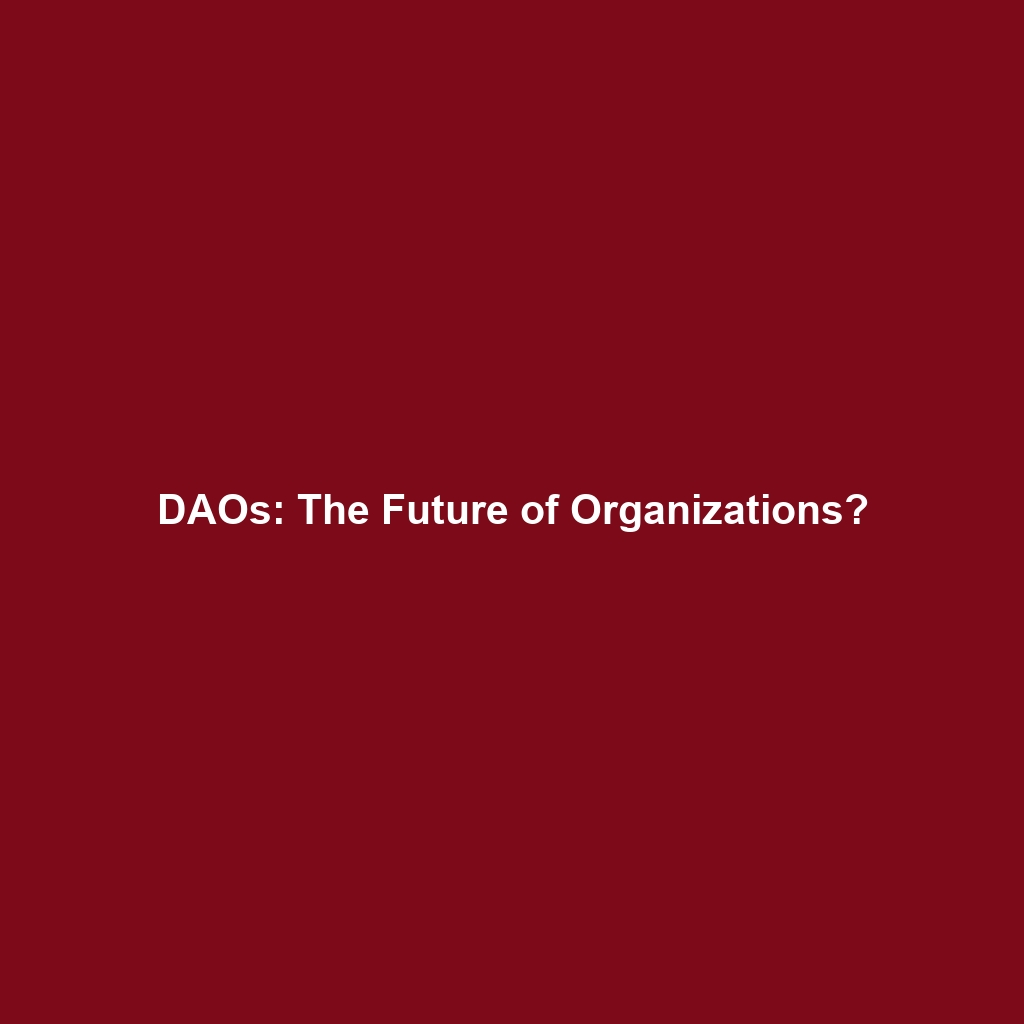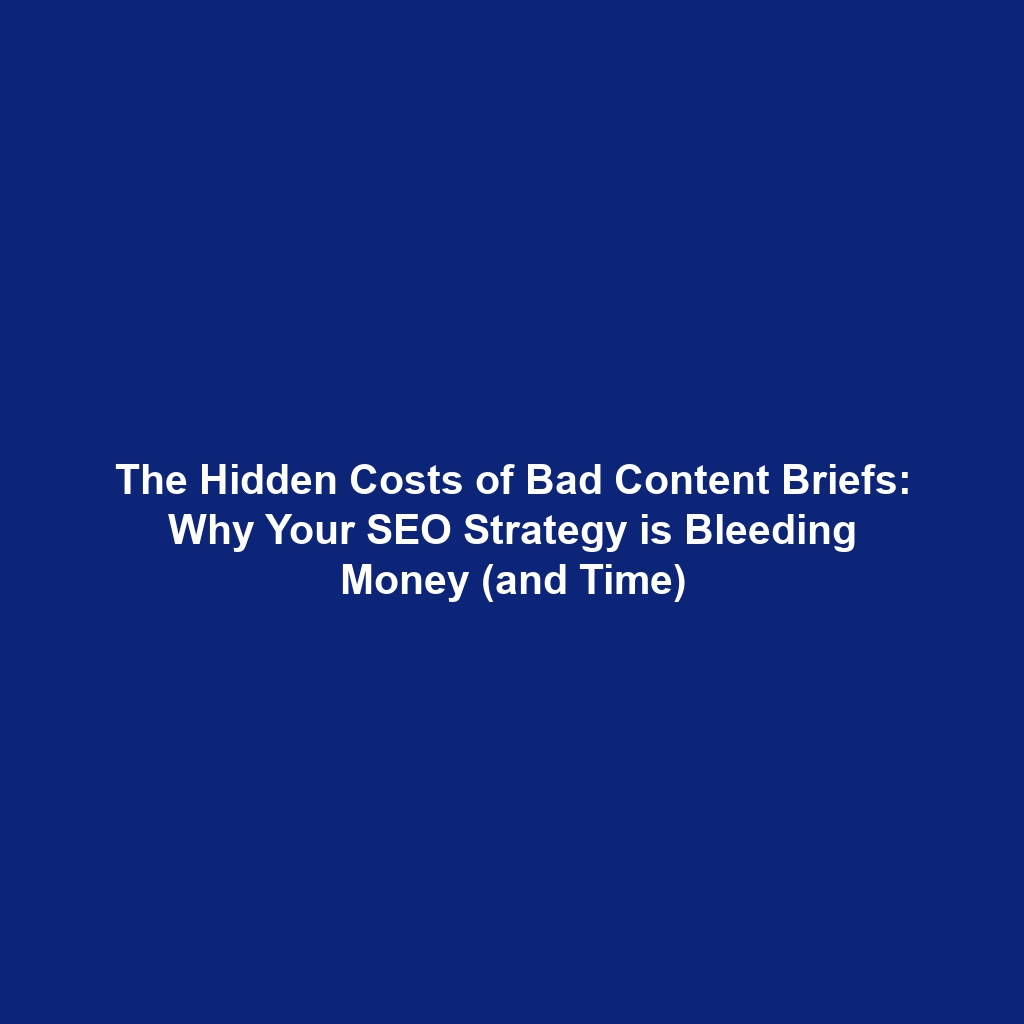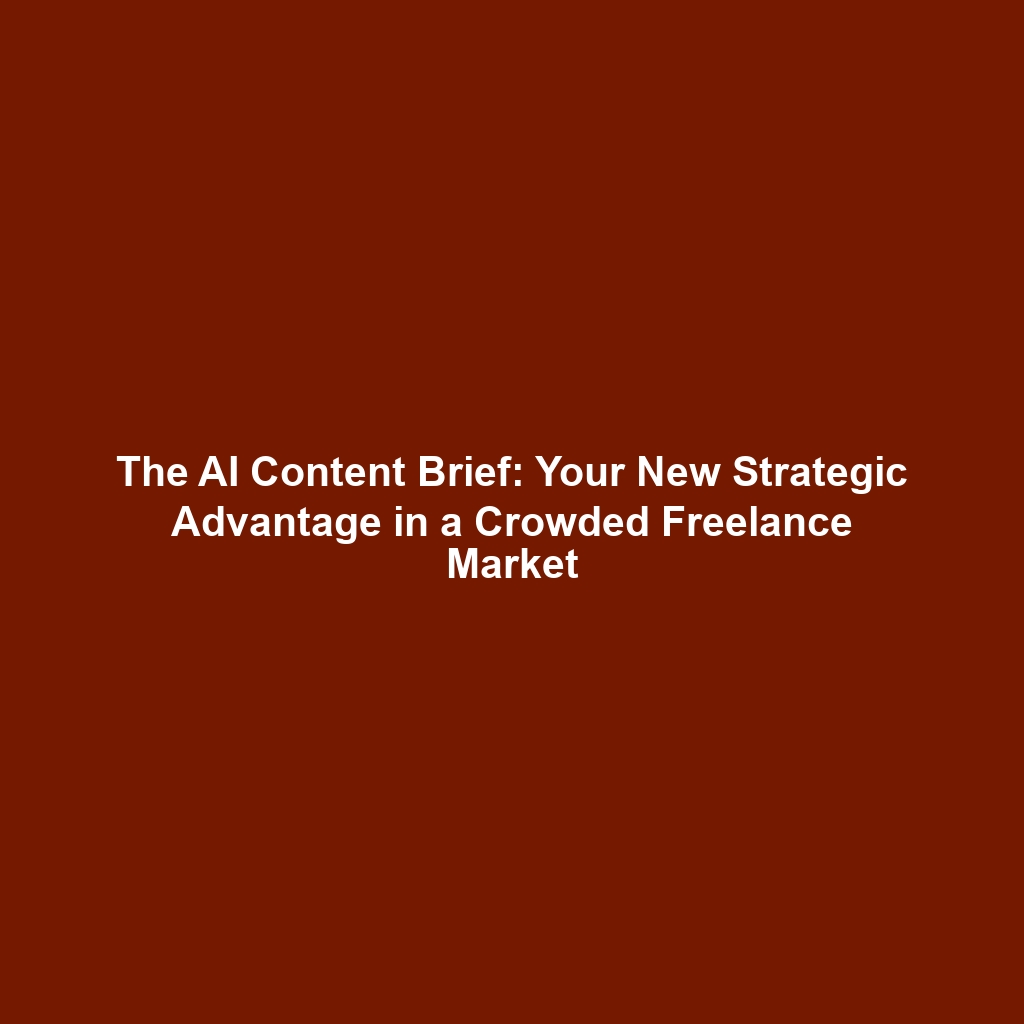The future of work is constantly evolving. We’re seeing shifts in how we collaborate, manage, and even define organizations. One particularly fascinating trend is the rise of Decentralized Autonomous Organizations, or DAOs. But are DAOs truly a revolutionary approach to organizational structure and governance, or just another buzzword? Let’s delve into the details, exploring their potential, challenges, and real-world implications.
What are Decentralized Autonomous Organizations (DAOs)?
At their core, DAOs are internet-native organizations governed by rules encoded on a blockchain. Imagine a company where decisions are made not by a central authority, but by the collective vote of its members, and where those votes are automatically executed thanks to smart contracts. That’s the basic premise of a DAO.
Key Principles of DAOs
- Decentralization: Power is distributed among members rather than concentrated in a hierarchical structure. No single entity controls the DAO.
- Transparency: All transactions and decisions are recorded on the blockchain, making them publicly auditable. This fosters trust and accountability.
- Community Governance: Members have the opportunity to propose and vote on decisions, shaping the direction of the organization.
- Automation: Smart contracts automatically execute decisions based on pre-defined rules and voting outcomes, minimizing the need for intermediaries.
Think of it like this: traditional companies rely on trust in individuals and institutions. DAOs aim to replace that trust with code. The rules are written in smart contracts, and those contracts are immutable and transparent.
Key Insight: DAOs prioritize transparency and community ownership. This contrasts sharply with traditional hierarchical structures, potentially fostering more engaged and motivated participants.
The Benefits of DAOs: A Paradigm Shift in Organizational Design
DAOs offer a range of potential benefits that could revolutionize how we think about organizations:
- Increased Transparency and Trust: All activities are recorded on the blockchain, reducing the potential for corruption and mismanagement. This transparency builds trust among members and stakeholders.
- Improved Efficiency: Smart contracts automate many processes, eliminating the need for intermediaries and reducing administrative overhead.
- Enhanced Participation and Engagement: Members have a direct say in the organization’s direction, leading to greater engagement and a sense of ownership.
- Greater Innovation: Open governance models can foster innovation by allowing diverse perspectives to contribute to decision-making.
- Global Collaboration: DAOs can easily facilitate collaboration across geographical boundaries, enabling individuals from around the world to contribute to a common goal.
For example, consider a freelance collective operating as a DAO. Instead of relying on a central agency to manage projects and payments, the DAO uses smart contracts to automatically distribute funds based on completed tasks and member votes. This eliminates the agency’s fees and provides greater transparency for freelancers.
Real-World Example: MolochDAO
MolochDAO is a well-known example of a successful DAO focused on funding Ethereum infrastructure projects. Members pool their resources and vote on which projects to support. The DAO’s transparent governance and efficient funding mechanism have made it a significant player in the Ethereum ecosystem.
Key Insight: MolochDAO demonstrates that DAOs can effectively manage and allocate resources in a transparent and community-driven manner.
The Drawbacks and Challenges of DAOs: Navigating the Obstacles
Despite their potential, DAOs also face significant challenges:
- Legal and Regulatory Uncertainty: The legal status of DAOs is still unclear in many jurisdictions, creating uncertainty for participants.
- Security Risks: Smart contracts are vulnerable to bugs and exploits, which could lead to the loss of funds. The DAO hack in 2016 serves as a stark reminder of these risks.
- Governance Challenges: Effective governance in DAOs can be difficult to achieve, particularly in large and complex organizations. Low participation rates and “tyranny of the majority” are potential concerns.
- Scalability Issues: Blockchain technology can be slow and expensive, limiting the scalability of DAOs.
- Complexity: Understanding and participating in DAOs can be technically challenging, hindering broader adoption.
I remember consulting with a startup exploring a DAO structure for their project. They were excited about the possibilities of decentralization but struggled with the complexity of writing and auditing smart contracts. They eventually opted for a hybrid approach, combining elements of traditional corporate governance with DAO principles.
Key Insight: DAOs are not a one-size-fits-all solution. Organizations should carefully consider their specific needs and challenges before adopting a DAO structure. A hybrid approach may be more appropriate in some cases.
The DAO Hack: A Cautionary Tale
In 2016, The DAO, one of the earliest and most ambitious DAO projects, was hacked, resulting in the theft of millions of dollars worth of Ether. This event highlighted the security risks associated with smart contracts and the importance of rigorous auditing.
Potential Applications of DAOs Across Industries
DAOs have the potential to transform various industries:
- Finance: DAOs can facilitate decentralized lending, borrowing, and investment, creating more accessible and transparent financial systems (DeFi).
- Governance: DAOs can be used to manage communities, organizations, and even cities, empowering citizens to participate in decision-making.
- Supply Chain Management: DAOs can track products and materials throughout the supply chain, ensuring transparency and accountability.
- Intellectual Property Management: DAOs can be used to manage and monetize intellectual property, allowing creators to retain control over their work.
- Social Impact: DAOs can be used to fund and manage charitable initiatives, ensuring that funds are used effectively and transparently.
Imagine a DAO that funds and manages a local community garden. Members vote on which crops to plant, how to allocate resources, and how to distribute the harvest. This fosters a sense of community ownership and ensures that the garden meets the needs of its members.
DAO in the Metaverse
The metaverse presents exciting opportunities for DAOs. They can govern virtual worlds, manage virtual assets, and facilitate interactions between users in a decentralized and transparent manner. Land ownership, content creation, and community events within a metaverse could all be managed by DAOs.
Legal and Ethical Considerations Surrounding DAOs
The legal and ethical implications of DAOs are complex and evolving. Key considerations include:
- Liability: Who is liable if a DAO makes a mistake or causes harm? This is a critical legal question that needs to be addressed.
- Regulation: How should DAOs be regulated? Striking a balance between innovation and consumer protection is essential.
- Taxation: How should DAOs be taxed? This is a complex issue that requires careful consideration.
- Ethical Concerns: DAOs can be used for unethical purposes, such as money laundering or fraud. Robust governance mechanisms are needed to prevent such activities.
- Data Privacy: DAOs collect and process data, raising concerns about data privacy and security.
I recently participated in a webinar discussing the legal challenges facing DAOs. The consensus was that regulators are taking a “wait and see” approach, but that clear regulatory frameworks are needed to foster responsible innovation in this space. For example, Wyoming has enacted legislation recognizing DAOs as legal entities, which could pave the way for other states to follow suit (Wyoming Legislation SF0038).
Key Insight: The legal and regulatory landscape for DAOs is rapidly evolving. Staying informed about these developments is crucial for anyone involved in DAOs.
The Future of DAOs: A Glimpse into Tomorrow’s Organizations
Despite the challenges, DAOs hold immense potential to reshape the future of work and organizational design. As technology advances and regulatory frameworks become clearer, we can expect to see DAOs become more prevalent and sophisticated.
Predictions for the Future of DAOs
- Increased Adoption: DAOs will become more mainstream as awareness and understanding grow.
- Improved Governance Models: New governance models will emerge that address the challenges of scalability and participation.
- Greater Integration with Traditional Organizations: DAOs will increasingly be integrated with traditional organizations, creating hybrid models that combine the best of both worlds.
- Specialized DAOs: DAOs will become more specialized, focusing on specific industries or use cases.
- Enhanced Security: Security protocols and auditing practices will improve, reducing the risk of hacks and exploits.
One area I’m particularly excited about is the potential for DAOs to empower marginalized communities. By providing access to capital, resources, and decision-making power, DAOs can help create more equitable and inclusive economic systems.
Key Insight: DAOs have the potential to democratize access to resources and opportunities, fostering greater economic inclusion.
Getting Started with DAOs: Practical Steps and Considerations
If you’re interested in exploring DAOs, here are some practical steps and considerations:
- Educate Yourself: Learn about the principles, benefits, and challenges of DAOs. There are many excellent resources available online, including articles, tutorials, and communities. Start with reputable sources like CoinDesk (CoinDesk) and CoinTelegraph (CoinTelegraph).
- Join a DAO: Participate in an existing DAO to gain firsthand experience. This will give you a better understanding of how DAOs operate and the challenges they face.
- Experiment with DAO Tools: Explore different DAO tools and platforms, such as Aragon (Aragon) and Snapshot (Snapshot).
- Consult with Experts: Seek advice from legal and technical experts who specialize in DAOs. This will help you navigate the complexities of DAO implementation.
- Start Small: Begin with a small-scale project and gradually scale up as you gain experience.
Remember, DAOs are a complex and evolving technology. Approach them with caution and a willingness to learn. By taking a thoughtful and informed approach, you can harness the power of DAOs to create more transparent, efficient, and democratic organizations.
Conclusion: Embracing the Decentralized Future
Decentralized Autonomous Organizations represent a potentially revolutionary approach to organizational structure and governance. While they are not without their challenges, DAOs offer the promise of greater transparency, efficiency, and participation. As technology continues to evolve and regulatory frameworks become clearer, DAOs are poised to play an increasingly important role in the future of work. By understanding the principles, benefits, and challenges of DAOs, organizations can position themselves to embrace the decentralized future and unlock new opportunities for innovation and growth. The journey won’t be without its hurdles, but the potential rewards are significant. The future is decentralized, and DAOs are leading the way.
This article was optimized and published by Content Hurricane.


